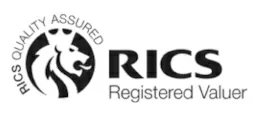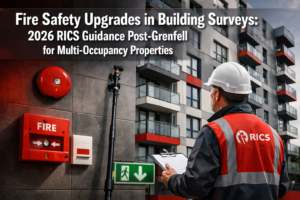
Valuation Red Book
What is Valuation According to the Red Book?
The Royal Institution of Chartered Surveyors (RICS) sets the international standards that govern the valuation of real estate – these standards are known informally—but not inaccurately—as the “Red Book”, which is, in turn, now the basis on which RICS members worldwide conduct their business.
The Manchester market is characterized by a wide range of properties, but it is especially valuable for its breadth that spans all types of real estate, from residential to commercial to industrial.
The RICS Red Book Valuation is Essential for What Reason?
When tax or legal matters require it, you should obtain a Red Book valuation. Most home buyers do not, however, engage in this kind of expensive, rigorous, and time-consuming valuation. When buyers want to know the value of a property for their purposes, they commonly have the property surveyed by a building consultant and themselves value the building as part of that process. Because the Red Book valuation is used primarily in contentious or high-stakes situations, a modern-day valuator must be well acquainted not only with building laws and construction practices but also with legal history.
You might need a Red Book valuation for myriad reasons—some obvious, some not so much. Here are a few examples:
- Capital gains tax
- Income tax
- Inheritance
- Divorce proceedings (matrimonial valuation)
- Shared ownership
- Rent review
- Pension funds (SIPPs)
How Long do RICS Red Book Valuations Last?
Typically an RICS Red Book Valuation will be valid for three months from the date of issue. If a surveyor believes it necessary, they may extend that validity an additional three months, however, the extension must be requested during the first two weeks of the three-month period that follows the initial valuation.
If you want reliable valuation figures for the kind of purposes that require them to be taken seriously—like property that’s the subject of a mortgage, in the probate process, or tied up in a divorce, for example—you want an RICS registered valuer delivering those figures – our panel of valuers based in Manchester is sworn to delivering peace of mind by working to RICS standards.
A standard review involves the following:
- Inspection: The property valuation process starts with an inspection of the home. The appraiser comes to your residence to take a series of measurements and photographs to record the home’s current condition and its features. Essential to the appraisal process, the inspection allows the appraiser to determine various factors that may have a bearing on the property’s value, those factors include: permits and zoning, easements and deed restrictions, building code compliance.
- Analysis: After gathering physical data about the property, the surveyor operates in an entirely different mode to conduct a desktop analysis and gather extra information about the property; they compile details regarding four major factors that influence the value of the property: location and size, age and condition, sales of comparable properties, environmental and legal factors
- Data Analysis: Once the data has been assembled, various valuation techniques are employed to analyse the information and derive an estimate of the property’s market value. The methods that are used depend on the type of property, the valuation’s intended use (i.e., the purpose of the valuation), and professional judgment.
- Report: Once the analysis is finished, the surveyor drafts a complete comprehensive valuation report in accordance with RICS Valuation—Professional Standards (the “Red Book”) – The report contains a description of the property itself, including size, location, and condition, an explanation of how the surveyor got from Point A (the property details) to Point B (the final value) using one or more of the property valuation methods taught in the college courses that many surveyors have taken, professional guidance, and assumptions and Limitations.
5. Review: The last step in the market valuation process is a review of the valuation report. The reviewer ensures the document meets the criteria established in the Red Book, occasionally, a second surveyor conducts a review for quality control. This peer review process ensures that the valuation is reliable and that users of the report can have confidence in it.
Do I Need a Red Book Valuation in Probate?
The complexities of probate can be difficult to traverse. For executors and beneficiaries, especially, it is essential to comprehend the need for and pay heed to the oft-overlooked benefits of a Red Book valuation – although it constitutes no legal requirement of the probate process, a Red Book valuation can make a significant and meaningful enhancement to the procedure—one with benefits that tend to number more than the downsides.
The legal affairs following a person’s death can be daunting and often convoluted – the estate of the deceased must be settled – If there was a will, it must be submitted to the court. The court, as the authority over the living and the dead, must authenticate the will, then the estate can be administered according to the expressed wishes of the departed. Inheritance tax must be paid on the total value of the estate, properly appraised, with the understood value of the court’s affirmation of the will covering any real property for which a judgment was required during the lifetime of the parties involved.
Advantages of an RICS Red Book Valuation
- A) Reliability: A Red Book valuation is of the utmost quality and trust in the property industry; conducted by registered valuers of the RICS (Royal Institution of Chartered Surveyors), these valuations follow standards that are known and accepted worldwide. That is just what is needed when dealing with appraisals for estates and trusts, it is essential that all parties involved—beneficiaries, executors, and even estate and trust lawyers—can have confidence in the RICS Red Book valuation.
- B) Fairness: The requirements of the Red Book ensure that valuers make good, well-thought-out decisions when conducting a valuation.
- C) Uniformity of Practices: The Red Book ensures that uniformity reigns in the world of estate appraisals; in other words, it guarantees that the “fruits” of the Red Book world are at least approximately equivalent to one another, just as appraisers guarantee that their appraisals are akin to one another. The kind of uniformity that the Red Book provides is good for the comparability and the reliability of judgments.
- D) Adherence to Law: A valuation according to the Red Book is ensured to comply with the necessary legal and regulatory bases, including with accounting standards and tax laws, this is important because it means that the valuation can withstand legal scrutiny and gives both executors and beneficiaries confidence in the result.
E) Risk Management: The RICS valuation approach entails an in-depth appraisal of a multitude of risks tied to a property’s value, such as market volatility, legal troubles, and environmental problems.

Surveys of Commercial Property
If you’re thinking of acquiring, leasing, subletting, disposing of, or altering commercial premises in Manchester, you would be well advised to locate a surveyor skilled in the nuances of commercial building surveying – should you spot a defect in a commercial building you can use that information to negotiate an asking price for the property that’s considerably lower than what the seller originally wanted, or you can talk your way out of a bad deal altogether.
Our Manchester-based team of RICS-compliant commercial building surveyors is equipped to handle matters throughout Manchester.
Contact
Our team prioritizes client care above all else. We look forward to being in touch with you so you can instruct a surveyor in Manchester, London, Bristol, Birmingham or Cardiff. You can reach out to us easily. Just fill out our form, and we’ll get back to you with a free quote for your survey. All our surveyors are qualified as members of the Royal Institution of Chartered Surveyors (RICS) and we are one of the UK’s leading providers of building survey and valuation services:
- Accredited Professionals: Certified by organizations like RICS, CIOB, and RPSA.
- Customized Survey Reports: inspections to meet your specific requirements.
- Local Expertise: Deep understanding and specialized knowledge.
- Expert Guidance: Professional recommendations and support.
The property survey you commission will be carried out by an accredited professional. Your chartered surveyor will be a member of the Royal Institution of Chartered Surveyors (RICS) or the Chartered Institute of Building (CIOB), or will belong to some other industry-standard professional body. Rest assured; you will receive highest quality of professional service for your survey.















